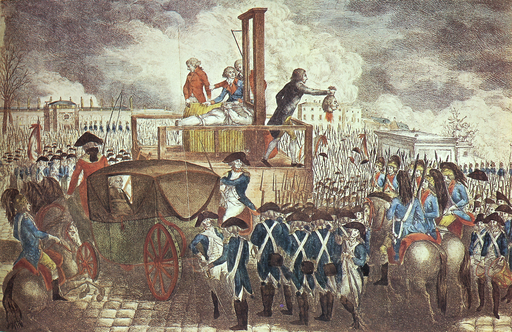
“Those who make peaceful revolution impossible,” President John F. Kennedy said in a 1962 speech, “will make violent revolution inevitable.”
Nearly 60 years later, two warring groups within the American political class seem resolutely determined to make “peaceful revolution” — by which JFK seems to have meant orderly democratic decision-making — impossible.
Supporters of Donald Trump rejected the outcome of the 2020 presidential election and, with his active if deniably worded encouragement, rioted in a tantrum intended to overturn that election’s results.
Trump’s opponents immediately and predictably responded with calls for a reign of terror to suppress “sedition.” US Representative Bennie Thompson (D-MS) asked the Transportation Security Administration and the Federal Bureau of Investigation to add Trump supporters who have yet to be convicted of (or, in many cases, even charged with) any crime to the unconstitutional “no-fly list.” Newly elected US Representative Cori Bush (D-MO) filed a resolution calling for the expulsion from Congress of members who objected (as House rules allow) to certification of the election results.
Big Tech promptly swung into action in support of the latter side. The two largest social media platforms, Twitter and Facebook, banned Team Trump’s major voices and vowed to block or delete posts that call Team Pelosi’s line into question. Google, Apple, and Amazon colluded to take another social media platform, Parler, offline with the obvious purpose of denying Team Trump’s supporters any venue for expressing wrongthink.
If you’re looking for good guys, you won’t find them on either side of this fight. It’s a fight between two factions of the political class, with Big Tech trying to appease and co-opt one of those two factions. It’s neither a revolution nor a fight for freedom. It’s just a schoolyard brawl over which gang gets to rule. The interests of ordinary Americans aren’t represented.
But ordinary Americans do seem to be rallying in great numbers to one side or the other. Whoever said “there’s a sucker born every minute” was low-balling it. The political class is well practiced at duping most of us into thinking we have skin in their power games.
That’s a big problem. Peaceful revolution, which would require an orderly dissolution, or at least devolution, of the US government, isn’t on the table. Neither major political class gang is willing to allow it on the table, because it would deprive them of power.
Fortunately, you can’t fool all of the people all of the time. Sooner or later, sufficient numbers will wise up, rise up, and put an end to this nonsense.
The Trump base, as personified by the DC rioters, is hardly an unstoppable force. But neither are its opponents an immovable object. The fates of Louis XVI, Nicholas II, and Nicolae Ceausescu are the alternative to peaceful revolution.
This dust-up is only one front in a larger war: A war by both gangs upon the rest of us. A war for power. A war for control. Neither gang will ultimately win that war. Their choice is whether to lose peaceably or violently.
Thomas L. Knapp (Twitter: @thomaslknapp) is director and senior news analyst at the William Lloyd Garrison Center for Libertarian Advocacy Journalism (thegarrisoncenter.org). He lives and works in north central Florida.
PUBLICATION/CITATION HISTORY
- “The Political Class: At War with Each Other and on the Rest of Us,” by Thomas L. Knapp, OpEdNews, 01/13/21
- “Political class at war with each other, us,” by Thomas L. Knapp, Spring Hope, North Carolina Enterprise, 01/14/21
- “Political class at war with each other, us,” by Thomas L. Knapp, Wilson, North Carolina Times, 01/14/21
- “The Political Class: At War with Each Other and on the Rest of Us,” by Thomas L. Knapp, Ventura County, California Citizens Journal, 01/15/21
- “The Political Class: At War with Each Other and on the Rest of Us,” by Thomas L. Knapp, CounterPunch, 01/15/21
- “There are no good guys on either side of this fight,” by Thomas L. Knapp, Kingsport, Tennessee, Times News [web and print], 02/18/21
- “The Political Class: At war with each other and on the rest of us,” by Thomas L. Knapp, New Rockford, North Dakota Transcript, 01/18/21
- “Political class is at war with each other — and us,” by Thomas L. Knapp, Fredericksburg, Virginia Free Lance-Star [web and print], 01/19/21
- “Political Class at War With Each Other,” by Thomas L. Knapp, Forest Hills/ Rego Park, New York Times [web and print], 01/19/21
- “Political Class at War With Each Other,” by Thomas L. Knapp, Queens, New York Examiner [web and print], 01/19/21
- “Political Class at War With Each Other,” by Thomas L. Knapp, Brooklyn, New York Downtown Star [web and print], 01/19/21
- “Political Class at War With Each Other,” by Thomas L. Knapp, Queens, New York Ledger [web and print], 01/19/21
- “Political Class at War With Each Other,” by Thomas L. Knapp, Glendale, New York Register [web and print], 01/19/21
- “Political Class at War With Each Other,” by Thomas L. Knapp, Long Island City / Astoria, New York Journal [web and print], 01/19/21
- “The political class is at war with each other and with the rest of us,” by Thomas L. Knapp, Sterling Heights, Michigan News-Herald, 01/26/21


